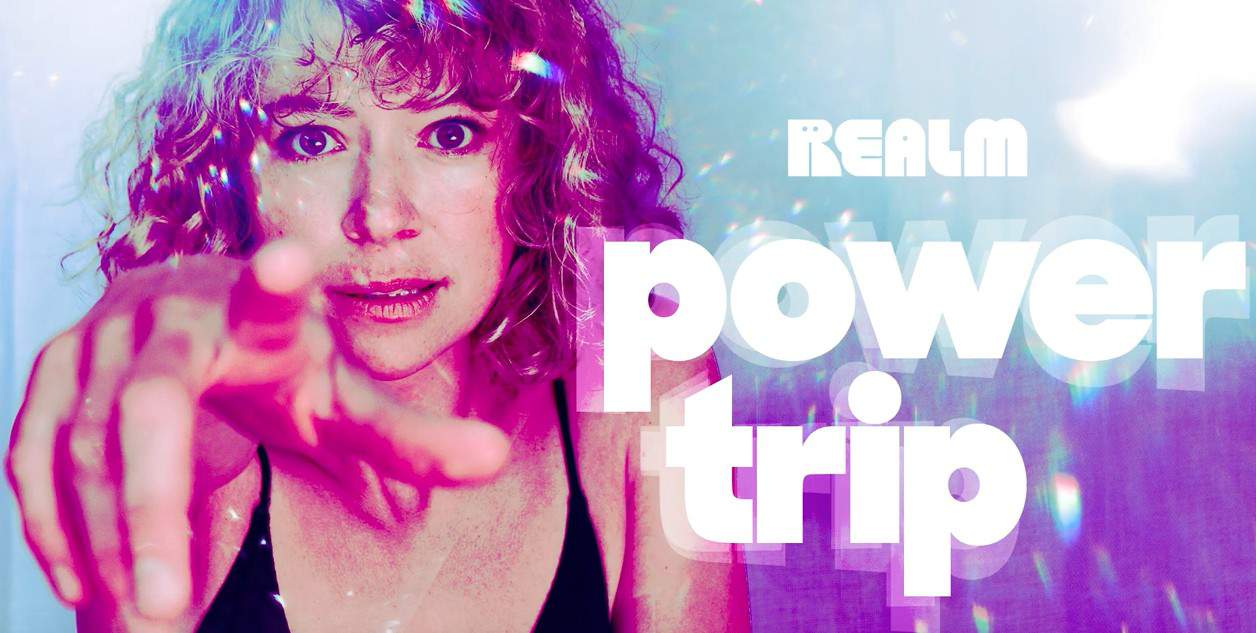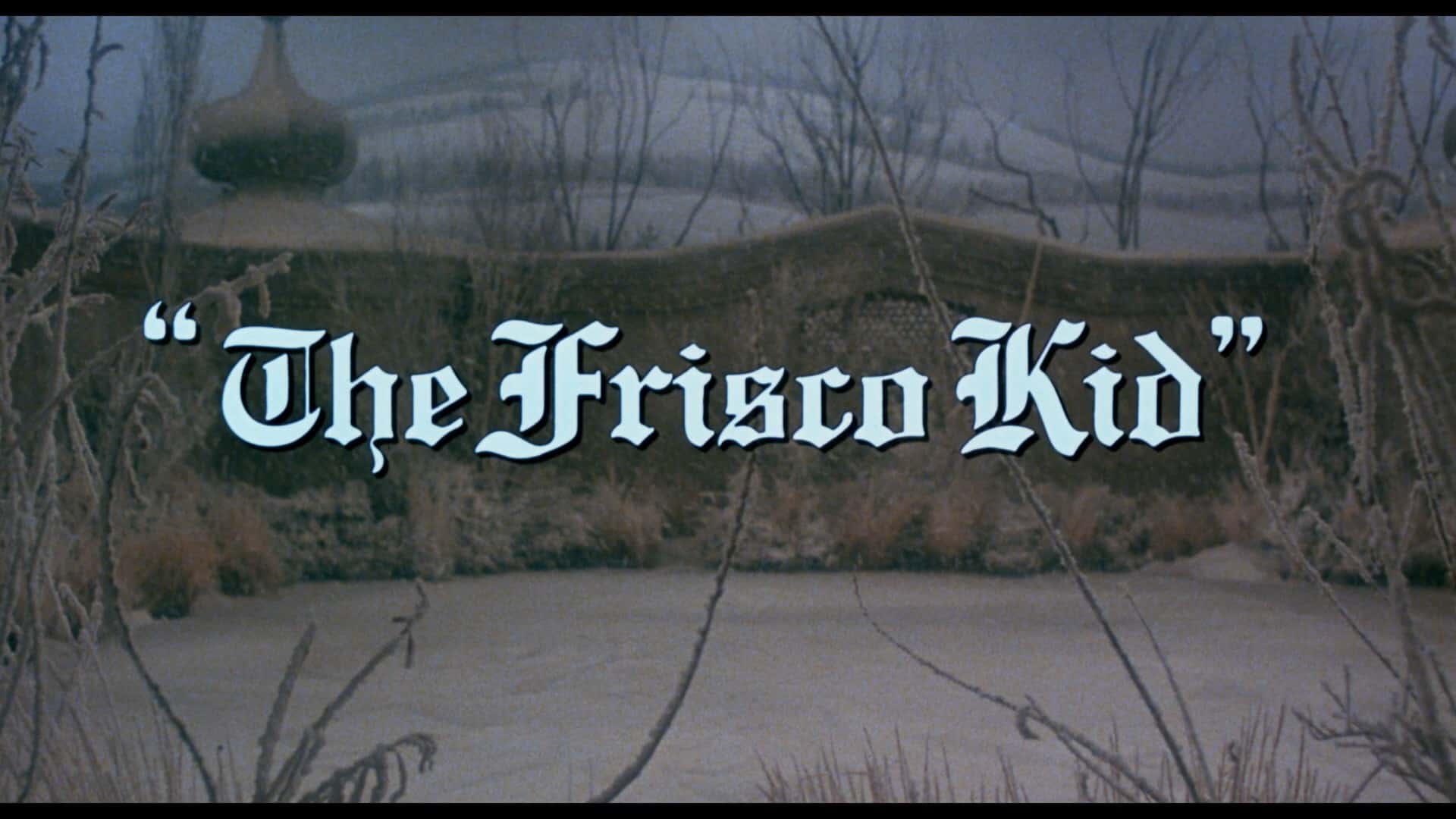Control: It’s something you very rarely have when you’re disabled. Whether it’s control over your own body, control over your own finances, or control over the exact trajectory of your life — there are a lot of things you just can’t help but not control. Autonomy is not easily granted, or given, and when people make assumptions about you based on that disability, or something else beyond your own control, even if they get to know you, it becomes very hard to live those assumptions down. There are times you think you might need a rewind button just to patch things up to where you want them.
Fortunately for Jane in “Buy Me A Drink”, her power to command becomes exactly that.
Realm‘s Power Trip is must-listen streaming!
The title of Power Trip‘s third episode links three of its vignettes dramatically; the first being Jane’s first official date with Bruce, the second being a narrowly-averted disaster at a coffee shop, and the third being a too-late remembrance of a tipsy online espresso machine purchase. But the third technically is covered by what comes next: An awkward encounter with Jane’s current employer — whom Jane soon finds out has decided to become, without telling her, her ex-employer.
In all these situations, Jane would normally be at a disadvantage; her awkward humor doesn’t gel well with Bruce, the shop’s cash register is being tended to by a trainee employee who won’t let her take an already-made latte without proper payment, and her longtime employer, having basically overlooked her and taken her for granted her entire period of employment, would rather cut her lose than deal with her disability honestly.
So, what’s a body to do? Well, Jane being Jane, she rewinds the conversation she’d been having with Bruce and plays to his deep, deep sincerity. Brendan Hines brings a really sweet, well-meaning sensitive fellow to life, to the point where you feel a bit bad that Jane is trying to keep him via her power. Bruce understands something of her predicament, having had a cousin who needed a kidney transplant, but his gentleness only goes so far when up against Jane’s cynicism; she’s never had this opportunity before, and is desperately trying not to lose such an obvious catch. A shared appreciation of The Sound of Music doesn’t necessarily translate to a connection across all things, but Jane rewinds the conversation again and again, matches Bruce’s sincerity, and finds a better ending to her night than she might’ve without her powers.
The second vignette requires a little more boldness, with Jane making the trainee give her a latte on the house and the trainee’s strident supervisor treat the trainee a little more nicely, in the middle of a busy coffee shop, and the third is an unintentional moment of necessity: Jane needs the money her employer, Sloane, would give her to continue being the nanny for her children after having depleted her savings on that espresso machine. She feels burned because of having been ghosted out of the job, but the money (and commanding Sloane, a publisher, to finally read one of her stories for publication) makes using her power too strong an incentive to pass up.
What continues to impress me about this show is that it feels lived-in; it feels authentic; it feels like actual life. Even though the plot hinges on the magical power bestowed by a kidney transplant, as somebody who’s disabled, as somebody who’s been in and out of hospitals since I was born, as somebody who’s had to struggle with to be acknowledged, to be valued in life, the things Jane goes through I can relate to practically on the molecular level; not just the specific situations, but the feelings, the frustrations, and the (if you don’t have a social group, as Jane has not had up until this point, to reach out to) the isolation and the other-ing that having a disability brings. People make assumptions; people read you wrongly, or make decisions for what they think is your own benefit without even consulting you. that people think they can impose themselves, their own readings of you, on you and on your personhood.
But the thing that most impresses me is that Jane isn’t herself the “model” type of person with a disability. That’s important. She isn’t a plaster saint; she’s imperfect, she makes mistakes, she’s human. She can misread a social situation like anyone else, and then desperately have to backpedal on what she’s said; she’s wary around others, naturally an outsider, and when she feels she wants something, she goes for that thing, whether it’s love, a latte, or an espresso machine. A person being represented doesn’t have to necessarily be the best, the most perfect person in order to be good representation. They just have to be human, and Jane is exactly that. Maslany as Jane doesn’t feel like acting; she feels lived-in, as though this is who she’s been her whole life. So much of her awkward humor and desire to just have some semblance of autonomy in her life resonates with me; I’ve been there. Sometimes you just want to open up a screaming goat video on the middle of a date and hope the other person appreciates it.
I really have to commend Mary Hamilton and Cara Horner, the writers of this show; they nail the tone, they nail the details, and Jane’s never not relatable even when she may be doing something ethically dubious. So much rings true to me that I know they’ve put the research in before writing this, and the grounding only enhances the realism of the comedy in this podcast, even as the plot is being driven by magical powers; there’s nothing implausible about people’s actions in this. The script (which Realm has made available to be read on their website along with the podcast audio itself) provides a wealth of further description and detail that, if you’re like me and are a bit harder of hearing, you can’t really do without (and, again, Realm providing their scripts for free to read is so rarely done with podcasts that I salute them for doing this, here). The sound design — by Tom Maggs and Rory O’Shea, mixed by Rory O’Shea, and with additional sound editing by Corey Barton — is immersive, but with every necessary sound and word of dialogue clear to understand. The internal voiceover and external dialogue never have to fight to be heard over each other; each can be distinctly heard, even if you’re harder of hearing like myself — and I can’t not keep giving props to that reverse echo effect on the “command” powers; I really love that. Kailynn West’s direction of the cast is superb, and the main players for this week — Maslany, Hines, and Lisa Loeb among them — don’t miss a beat; Hines, in particular, shines here in the date scene.
I have a feeling this show will continue going from strength to strength from episode to episode — but it’s also so much fun that I really hope people listen to it week to week (or, if you’d prefer to binge it all at once, get a Realm Unlimited subscription, as I did). I appreciate the representation, I appreciate the obvious love and craft put into this show, but most of all, I’m really looking forward to what comes next — a trip to Coney Island? Count me in.
Power Trip is available on Realm.fm, or wherever you listen to podcasts.


